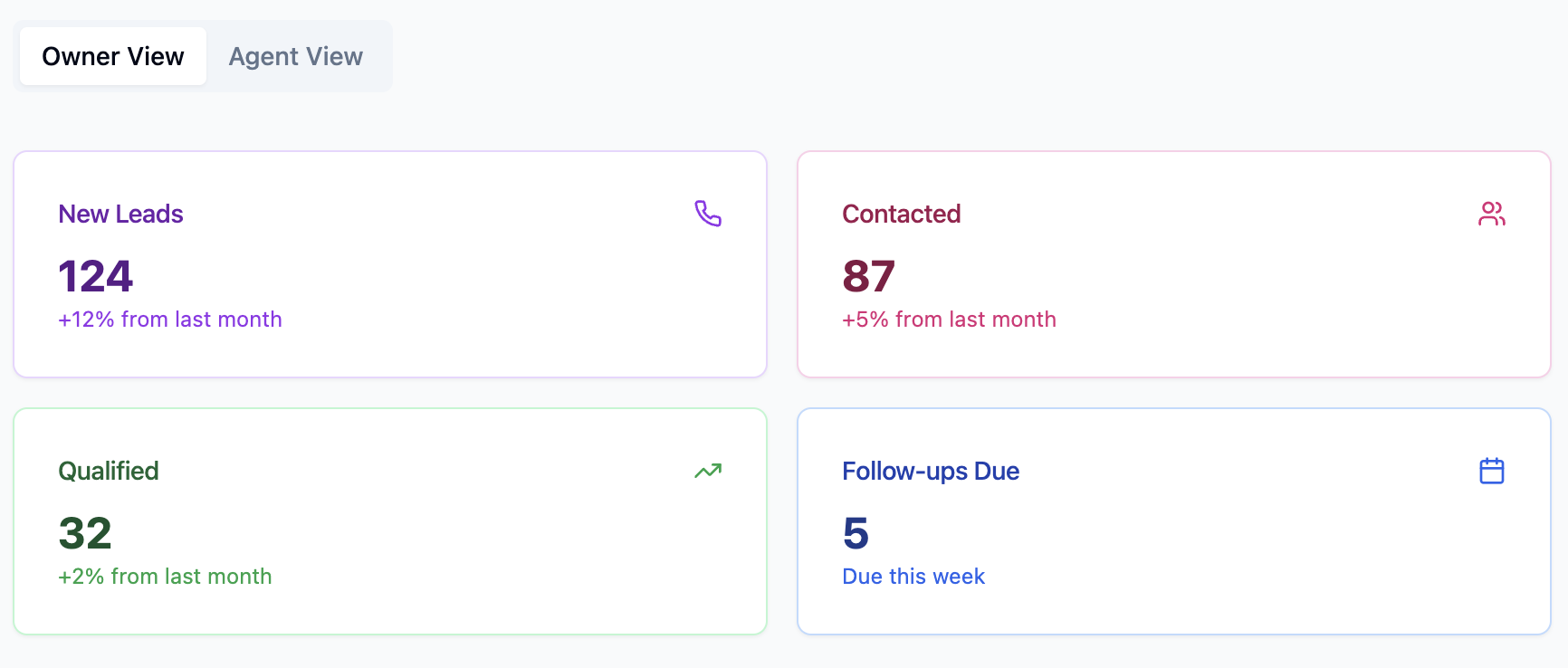What Does CRM in Real Estate Stand For? Decoding the Acronym for Agent Success
In the bustling world of real estate, you’ll often hear the acronym “CRM” mentioned as an essential tool for agents, brokers, and agencies. But what exactly does it mean? If you’re wondering, “what does CRM in real estate stand for?” you’re in the right place. Understanding this fundamental concept is the first step towards leveraging technology to streamline your operations, build stronger client relationships, and ultimately, close more deals. This guide will break down the definition, explore its critical role in the property sector, and reveal how modern advancements, particularly AI-powered solutions like Glue Sky, are revolutionizing what a CRM can do for real estate professionals.
Breaking Down the Acronym: CRM = Customer Relationship Management
At its most basic level, CRM stands for Customer Relationship Management. While the acronym itself is straightforward, the concept encompasses a broad range of strategies, practices, and technologies that businesses use to manage and analyze customer interactions and data throughout the entire customer lifecycle. The primary goal? To improve business relationships with customers, assist in customer retention, and drive sales growth.
Think of it as a centralized hub where all your client and lead information lives, breathes, and becomes actionable. It’s more than just software; it’s a business philosophy centered around the customer. However, in common parlance, “CRM” often refers to the CRM system or software itself – the technological tool that enables these relationship management strategies.

A CRM system, like Glue Sky, centralizes client data and interactions for real estate professionals.
Why is “Customer Relationship Management” So Crucial in Real Estate?
The “Customer Relationship Management” aspect of CRM is particularly resonant in the real estate industry. Unlike many transactional businesses, real estate is profoundly relationship-driven. Consider these unique characteristics:
- High-Value, Infrequent Transactions: Buying or selling a property is one of the most significant financial decisions a person makes. Trust and rapport are paramount.
- Long Sales Cycles: From initial inquiry to closing can take weeks, months, or even years. Nurturing leads over this extended period is essential.
- Emotional Decisions: Property transactions are often emotionally charged. Understanding client needs, anxieties, and motivations is key.
- Repeat Business and Referrals are Gold: A satisfied client is not just a closed deal; they are a source of future business and valuable referrals. Maintaining long-term relationships is vital.
- Vast Amounts of Data: Agents juggle information about multiple clients, numerous property listings, specific buyer preferences, seller motivations, market trends, and complex transaction details.
Given these factors, effectively managing relationships isn’t just good practice in real estate – it’s the bedrock of a sustainable and successful career. This is where a dedicated real estate CRM system becomes indispensable. For a deeper dive, explore the meaning of a CRM database.
Beyond the Acronym: What a Real Estate CRM *Actually Does*
Now that we know CRM in real estate stands for Customer Relationship Management, let’s explore the core functionalities of a system designed for this purpose in the property sector. A good real estate CRM isn’t just a digital Rolodex; it’s a multifaceted platform. Key real estate CRM features typically include:
1. Centralized Contact and Lead Management
This is the heart of any CRM. It allows you to store and organize detailed information about all your contacts – leads, prospects, current clients, past clients, and even referral partners.
- Comprehensive Profiles: Store names, phone numbers, email addresses, physical addresses, lead sources, communication history, property preferences (beds, baths, location, price), family details, important dates, and notes from every interaction.
- Lead Tracking & Segmentation: Monitor where leads are in your sales funnel (e.g., new, contacted, nurturing, qualified). Segment leads based on criteria like buyer/seller, hot/warm/cold, or specific interests for targeted follow-up. Effective CRM lead management is crucial.
2. Sales Pipeline and Deal Tracking
Visualize and manage your potential and active deals from inception to close.
- Customizable Pipelines: Create visual stages that reflect your specific sales process (e.g., Initial Inquiry > Needs Assessment > Property Showings > Offer Made > Negotiation > Under Contract > Closed).
- Opportunity Management: Track individual deals, their potential value, likelihood of closing, expected close date, and associated contacts and properties. This is vital for a real estate sales CRM.
3. Communication Tracking & Integration
Keep a record of all interactions to ensure seamless and informed follow-up.
- Email Syncing: Integrate with your email client (e.g., Gmail, Outlook) to automatically log sent and received emails against contact records.
- Call Logging: Manually log call details or, with advanced CRMs, integrate with phone systems or VoIP for automatic logging. Some CRMs, like Glue Sky, even automate the calls themselves. Check out CRM and dialer integrations.
- SMS/Text Message Management: Send and track text messages from within the CRM, keeping all communication in one place. See CRMs with text messaging.
4. Task and Activity Management
Stay organized and ensure nothing falls through the cracks.
- To-Do Lists & Reminders: Create tasks for follow-ups, appointments, or deadlines, assign them to team members, and get automated reminders.
- Calendar Integration: Sync tasks and appointments with your primary calendar.
5. Automation of Repetitive Tasks
Free up valuable time by automating routine processes.
- Drip Campaigns: Set up automated email or SMS sequences to nurture leads over time. This is a key feature of real estate CRMs with drip campaigns.
- Workflow Automation: Create rules that trigger actions based on specific events (e.g., when a new lead comes from your website, automatically assign it to an agent and send a welcome email).
6. Reporting and Analytics
Gain insights into your business performance to make data-driven decisions.
- Dashboards: Visual overview of key metrics like lead conversion rates, pipeline status, sales performance, and marketing effectiveness.
- Custom Reports: Generate detailed reports on various aspects of your business.
7. Property Information Management (often)
While not a full property management system, many real estate CRMs allow you to store details about properties, link them to listings, or track properties your clients are interested in or own.
The Glue Sky Evolution: AI Supercharging “Customer Relationship Management”
Understanding that CRM in real estate stands for Customer Relationship Management is foundational. However, modern technology, especially Artificial Intelligence, is dramatically enhancing what these systems can achieve. Glue Sky is at the forefront of this evolution, offering an AI-powered CRM and outreach platform that goes beyond traditional data management and task automation.
How does Glue Sky’s AI elevate Customer Relationship Management?
- Proactive Engagement, Not Just Passive Tracking: Traditional CRMs help you track leads. Glue Sky’s AI *actively engages* them. Its conversational AI can:
- Make AI Cold Calls: A voice assistant calls leads, qualifies them, and can even book appointments. This is a game-changer compared to manually dialing or using a basic auto dialer. Learn about AI cold calling for real estate.
- Send AI-Generated Emails & SMS: The AI crafts personalized messages based on lead behavior or status, ensuring timely and relevant follow-up.
- Intelligent Full Workflow Automation: Glue Sky combines AI calls, emails, and texts into smart sequences. This isn’t just pre-set drip campaigns; it’s dynamic, conversational outreach managed by AI. It’s like having an AI sales agent.
- Automated Lead Qualification: The AI handles the initial screening and qualification, allowing human agents to focus their energy on the most promising, pre-warmed leads.
With Glue Sky, the “Management” in Customer Relationship Management becomes far more automated, intelligent, and proactive. It’s about empowering agents by having the system do more of the heavy lifting in building and nurturing relationships at scale.
Key Benefits: What Real Estate Professionals Gain from Understanding and Using a CRM
Now that you know what CRM in real estate stands for and what it can do, the benefits become clear:
- Improved Organization: All client and lead data is in one easily accessible place.
- Enhanced Productivity: Automation of routine tasks saves significant time.
- Stronger Client Relationships: Personalized communication and consistent follow-up build trust and rapport.
- Increased Sales: Better lead nurturing and efficient pipeline management lead to higher conversion rates.
- Never Miss an Opportunity: Automated reminders and systematic follow-up ensure no lead is forgotten.
- Data-Driven Insights: Reporting helps you understand what’s working and where to improve.
- Scalability: A good CRM supports your business as it grows, whether you’re a solo agent or managing a team. (Essential for real estate teams).
- Better Team Collaboration: Shared access to information ensures everyone is on the same page.
Conclusion: CRM in Real Estate is Your Foundation for Growth
So, what does CRM in real estate stand for? It stands for Customer Relationship Management – a vital strategy and technology for thriving in the competitive property market. It means having a systematic approach to managing every interaction with your clients and leads, from initial contact through to closing and beyond, fostering loyalty and driving repeat and referral business.
A well-chosen real estate CRM is more than just software; it’s a central pillar of your business operations. And with AI-powered solutions like Glue Sky, the potential of CRM is expanding exponentially. These advanced systems don’t just help you manage relationships; they actively help you build and nurture them through intelligent automation, freeing you up to focus on high-value activities and strategic growth.
Understanding the meaning and purpose of CRM is the first step. The next is leveraging it to its full potential to transform your real estate business.
Ready to see how an AI-powered approach to Customer Relationship Management can revolutionize your real estate success? Discover Glue Sky and experience the future of real estate CRM today!
